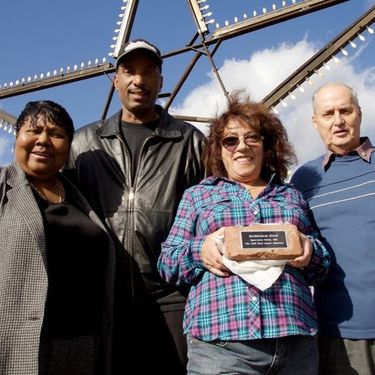
Giedre Jarulaitiene
Sessions in which Giedre Jarulaitiene participates
Sunday 5 June, 2016
Sessions in which Giedre Jarulaitiene attends
Saturday 4 June, 2016
What if we changed our views on heritage? And if heritage has already changed? While, on the global scene, states maintain their leading role in the mobilization of social and territorial histories, on the local scale, regions, neighbourhoods and parishes have changed. Citizens and communities too: they latch on to heritage to express an unprecedented range of belongings that no law seems to be able to take measures to contain, often to the discontent of...
Since the beginning of the 19th century religious buildings and artefacts of the West have been involved in a continuous process of musealization. In the time-period subsequent to the Second World War, the general forces of secularisation increasingly turned religious buildings, most of them churches, into heritage and substantial parts of Christian practices into history. On a global scale (Western), conservation and heritage practices have been applied on tangible and intangible expressions...
This session explores artist-history exchanges in the context of heritage sites, venues and spaces, and considers recent curatorial and artistic interventions and performative strategies, such as decolonial methodologies. Drawing on disciplinary art history, this session approaches heritage sites as strategically re-deployed historic structures that function as representational signs – artifactual objects furnished with other objects that cumulatively and, by virtue of their provenance, pr...
The notion of heritage is closely linked to processes of change. In the Western context, the definition of heritage as "a contemporary product shaped from history" (Harvey 2010) highlights the extent to which our relationship with the past is being continually re-configured. However, there is a future dimension implied in this relationship that is often neglected; to paraphrase William Morris, the sense in which heritage testifies to the hopes and aspirations of those now passed away. Making ...
In many parts of Europe and North America, but also in Australia, Japan and parts of China, regions of heavy industry, in particular regions of coal and steel industries, have been in decline since the 1960s. In many of these regions, the transition to post-industrial landscapes has provoked discussions surrounding industrial heritage, what to do with it and for which purposes. One of the most ambitious industrial heritage projects was initiated in the Ruhr region of Germany from the 1960s on...
This festive event will offer delegates a taste of one of the iconic dishes of Montreal, the smoked meat sandwich, imported by Jewish immigration from Eastern Europe in the early 20th century. In particular, the tasting will allow a discovery of the products of the renowned international institution Schwartz's, the Hebrew Delicatessen for which Montrealers and tourists alike are willing to wait in long line-ups. During the tasting, “Chez Schwartz,” a documentary produced by Garry B...
Most of what we experience as heritage emerges into conscious recognition through a complex mixture of political and ideological filters, including nationalism. In these processes, through a variety of devices (museums, scholarly research, consumer reproduction, etc.), dualistic classifications articulate a powerful hierarchy of value and significance. In particular, the tangible-intangible pair, given legitimacy by such international bodies as UNESCO, reproduces a selective ordering of cul...
Sunday 5 June, 2016
(In English) Chinatown, born in the second half of the 19th century, is a hub of commercial and sociocultural activities which showcases Chinese culture in Montreal. It has become, over time, an iconic landscape of the city’s cultural diversity. Jonathan Cha, urbanologist, landscape architect and doctor in both space and town planning, proposes a discovery tour allowing us to get acquainted with the history of the district and the decipherment of its landscape. _ Le Quartier chinois, né dans ...
With his expression "ceci tuera cela," Hugo established almost two centuries ago a strong link between words and stones as transmission vehicles of human memory. We heritage experts would be inclined to consider stones as more reliable than words, what semiology seems to confirm: stones are clues, and clues are, according to Roland Barthes, tangible proofs of “what has been.” But the inspector Columbo has often shown how we can play with these clues, and Umberto Eco would easily forgive us th...
Russell Staiff argues that heritage discourse and practice are tightly interwoven with the theoretical legacy of the visual arts, specifically citing the shared concerns of formalism, iconography, aesthetics and modernism (“Heritage and the Visual Arts” 2015). Yet craft, as a field of knowledge, is often subsumed under the visual arts, when in fact its materialities, functionality, concerns about skill and preoccupation with the local (whether understood as geographically or politically const...
"What does heritage change?" is a multifaceted question to which the answer(s) are in primary respects related to real-life negotiations among different groups of citizens, cultures, races, ethnic groups, sexual identities, and social classes about received, official and/or widely accepted or accomodated intangible attributes, cultural traditions, historic monuments, buildings, and other transmitted or revived historical legacies. Heritage designated by and for whom, for what motivations, an...
Directed by Tom Fassaert and presented by Marc Jacobs. ___ Doel, a Belgian village near the Dutch border, is disappearing quickly and deliberately. Not because of the four old nuclear reactors on its territory, but because the Flemish government decided that the village might block projects for new docks for the Antwerp harbour, plans developed since the 1960s. In the 21st century this process of officially encouraged depopulation is coming to an end: 2500 inhabitants i...
Monday 6 June, 2016
(In English) Nowadays, Griffintown is under the spotlight due to an urban renewal plan which is transforming the landscape accordingly. Former working-class neighborhood, north of the Lachine Canal, the Irish community settled there as early as 1847 and started using it as a rallying point. Jonathan Cha, urbanologist, landscape architect and doctor in urban studies invites you to go back in time in order to discover the history of the neighborhood and its multiple transformations....
Cities are growingly being faced by social, economic, cultural and environmental challenges imposing health and social risks. Rapid urbanization, population growth, climate change are only some of the major global challenges that a 21st century city needs to respond to. The current challenging global environment has led to the development of new approaches to the concept of "sustainable city" a city that caters for current and future generation. For instance, the idea of smart city (a city th...
The field of heritage has emerged as a key site of reflection. Influenced by shifts in the academy (e.g., post-colonial, post-structural and feminist theories), heritage scholars are bringing increased attention to the deployment of heritage as both a conceptual category and a contested field of power and discourse. Nevertheless, significant challenges remain in communicating what comprises the theoretical and methodological toolkit of heritage studies. Scholars are still mapping out the nuan...
Architectural historian John R. Stubbs suggests that architectural conservation is concerned with historic buildings and their sites as well as their associated accoutrements, such as furnishings and fittings. But what happens if the building itself is not seen as “historic” or even worthy of a heritage designation, much less conservation, while its site and furnishings are significant in aesthetic, cultural or social terms; in other words what happens when a building’s decorative arts tru...
This proposal makes the case that heritage’s capacity for change may be dependent on a paradigm shift in how heritage is interpreted. With this paradigm shift in play, a question is then asked: Can authenticity be used as a design driver to resolve how best to incorporate the four pillars of sustainability in a building’s design? The proposal begins with a discussion about the difference between using heritage reactively and proactively. It then presents a brief introduction to the...
Le patrimoine fait aujourd’hui l’objet d’attentions autant que d’agressions et de destructions. Cela peut s’expliquer par les difficultés de son identification ou de sa conservation. Cela peut plus profondément s’expliquer parce que, dès le départ, il célébre un événement ou conserve une mémoire qui peut être ou devenir une source de dissenssions et de conflits politiques. Enfin, sa reconnaissance suscite des gains économiques pour les uns mais des pertes pour les autres. Mais peut-être...
To celebrate our film series dedicated to heritage, sponsored by the Department of American Studies at the University of Maryland and the United States Chapter of the Association of Critical Heritage Studies, this event will spotlight the iconic Sugar Shack, which is rooted from Quebec to New-England and which is both the place of maple syrup production and of friendly gatherings during the maple syrup season. In a festive atmosphere, delegates will be invited to taste one of the essential of...
Directed by William Shewbridge and Michelle Stefano USA; 35 mins Presented by Michelle Stefano ___ After 125 years of operation, the Sparrows Point Steel Mill (Baltimore, Maryland) finally closed its doors in 2012. The film, “Mill Stories”, examines the importance of the mill from the perspectives of former workers and community members while connecting their story to the larger narrative of industrial boom and bust. The film seeks to amplify the voices of forme...
Directed by Christine Walley and Chris Boebel Presented by Michelle Stefano When the steel mills began closing on Chicago's Southeast Side, residents could feel the American Dream slipping away. Decades later, the loss of the steel industry has left permanent scars. The documentary film, Exit Zero: An Industrial Family Story, is named for the highway exit number for Chicago’s old steel mill neighbourhoods and captures the feeling of a region passed over. In poignant and some...
Tuesday 7 June, 2016
What is the future of the UK and what is the role of heritage in this shifting political landscape? How have debates on heritage in the UK changed since the influential critiques of Hewison and Wright in the 1980s? How can those engaged in Critical Heritage Studies in the UK negotiate the difficult relationship between academic critique and sector relevance? How do current debates in the UK relate to and differ from those in Western and non-Western contexts? This workshop will bring ...
The closing dinner of the conference, called “Pawâ” according to a French-Canadian tradition borrowed from the Native American lexicon, will be an opportunity to discover, in the heart of the Old Port of Montreal, an original culinary creation by the caterer Agnus Dei, from the renowned Maison Cartier-Besson in Montreal, leader in its field for its boundless creativity and event expertise. The dinner, in the form of stations, will offer delegates an exploration of Quebecois culinary heritage,...
Wednesday 8 June, 2016
More details to come. Bus tour. Tour Guide : Luc Noppen Coût / Fees : 48$ + taxes











